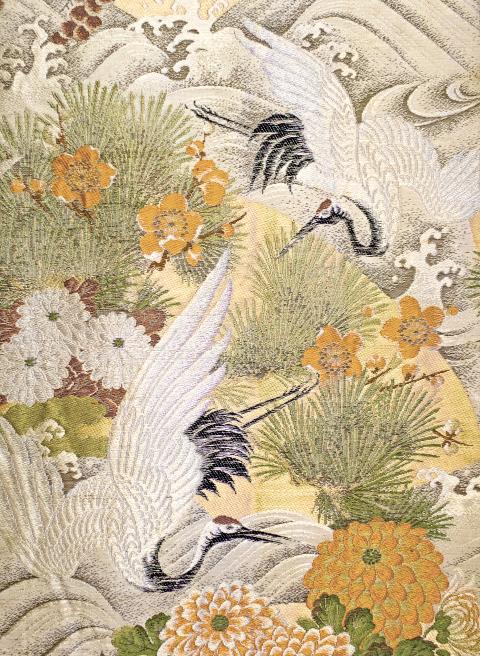Chinese Practice
一舉兩得、一箭雙鵰
yi1 ju2 liang3 de2; yi2 jian4 shuang1 diao1

Photo: Paul Cooper, Taipei Times
照片:台北時報記者古德謙攝
One action, two gains
One arrow, two birds of prey
這次介紹的是兩句意義相似、且都源自於古代故事的成語:「一舉兩得」和「一箭雙鵰」。
第一個故事講述春秋時代,有名獵人得知深山裡有兩隻老虎,打算上山獵虎。然而老虎相當兇狠,於是有人建議他,可以等到兩隻老虎爭食完,彼此打累了之後再出擊。獵人上山後果真看到兩隻老虎爭搶一頭牛,相爭過程中,一隻虎咬死另外一隻。獵人覺得時機成熟,便上前輕鬆把剩下的那隻老虎殺死。這個故事後來便衍生出成語「一舉兩得」。
第二個故事講述一名擅長軍事和射箭的隋朝將軍長孫晟,某日去打獵,看見空中有兩隻鵰,他只用一支箭便把兩隻鳥射下,於是有了「一箭雙鵰」這個成語,意即一次行動,可以同時達到兩個目標。
英文中也有一個類似的諺語,就是”to kill two birds with one stone,” 意思一樣是指以一次行動,達成兩個目標。有趣的是,中文也有「一石二鳥」的說法,此成語就跟英文的概念一模一樣。
(台北時報記者古德謙整理)
我在搬家前把幾件二手家具賣給我的室友,因為我的新家放不下,她又正好用得上,可以說是一舉兩得。
(Before I moved house I sold my roommate some secondhand furniture. I can’t fit it in my new place, and she could do with it. Why not kill two birds with one stone?)
我的新盆栽不但可以美化環境,還可以驅蟲,一箭雙鵰。
(My new bonsai makes the place look nicer and also repels insects. I’m killing two birds with one stone.)
英文練習
kill two birds with one stone
There are two Chinese idioms, with similar meanings and which come from stories from ancient China, which mean the same as the English “to kill two birds with one stone.”
The first comes from pre-imperial China. A hunter heard tell of two tigers in the mountains, and was advised to wait until they had fought over a kill before attacking. He found two feasting on a bull they had killed. He waited until they fought, and the vanquished lay dying, before he went in to kill the victor. This story became the idiom 一舉兩得.
The second story relates how a Sui dynasty general and archer named Zhangsun Sheng saw two birds in the sky one day and shot them down with a single arrow, giving us the idiom 一箭雙鵰.
Both「一舉兩得」and「一箭雙鵰」mean achieving two goals at one time. Interestingly, there is another phrase,「一石二鳥」, which literally means “one stone, two birds.”
Why don’t you drive me to town and pick up your new phone while we’re there. Kill two birds with one stone.
(要不要載我去城裡,順便去領你的新手機?一舉兩得。)

Rice is essential to Japanese culture, tradition and politics. People take pride in the oval-shaped sticky Japonica grain, which is still a staple even though total consumption has fallen over the decades. But since last summer, prices have soared as supplies have fallen short of demand. The government has long paid farmers to cut back on rice acreage, and change to other crops to keep rice prices relatively high. To cope with shortfalls this year, the government has released rice reserves. But the grain has been slow to reach supermarket shelves. Anger over that was part of the reason the Agriculture Minister

Step into any corner of Turkiye, and you’ll likely encounter the iconic “Evil Eye,” known as “nazar boncu?u” in Turkish. This striking blue glass ornament is shaped like an eye with concentric circles of dark blue, white, and light blue. While its name in English suggests something threatening, it’s actually a charm designed to ward off misfortune. The origins of the nazar boncu?u can be traced back to ancient Mediterranean and Middle Eastern traditions. The word nazar comes from Arabic, meaning “gaze,” while boncu?u translates to “bead” in Turkish. Central to the nazar boncu?u’s mythology is the idea that

Continued from yesterday(延續自昨日) https://www.taipeitimes.com/News/lang In 1946, the company adopted the name 7-Eleven to reflect its newly extended __3__, from 7am to 11pm, a novel concept at the time. As a rapidly growing company, it began offering franchise opportunities in the 1960s. In 1974, the first 7-Eleven in Japan was opened by the supermarket company Ito-Yokado. The Japanese franchises were __4__ successful that by 1991, Ito-Yokado was able to acquire a 70 percent stake in Southland Corporation. Its investments eventually resulted in full ownership of 7-Eleven, which paved the way for the Japanese company to enter the international market. Since then, 7-Eleven

A: Wow, Les Miserables Staged Concert Spectacular is visiting Taiwan for the first time. B: Isn’t Les Miserables often praised as one of the world’s four greatest musicals? A: Yup. Its concert is touring Taipei from tonight to July 6, and Kaohsiung between July 10 and 27. B: The English version of the French musical, based on writer Victor Hugo’s masterpiece, has been a huge success throughout the four decades since its debut in 1985. A: The musical has never toured Taiwan, but going to the concert sounds like fun, too. A: 哇,音樂劇《悲慘世界》紀念版音樂會首度來台巡演! B: 《悲慘世界》……它不是常被譽為全球四大名劇之一嗎? A: 對啊音樂會將從今晚到7月6日在台北演出,從7月10日到27日在高雄演出。 B: 這部法文音樂劇的英文版,改編自維克多雨果的同名小說,自1985年首演以來,在過去40年造成轟動。 A: